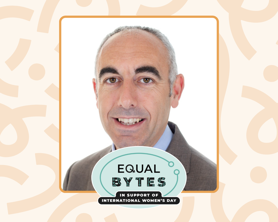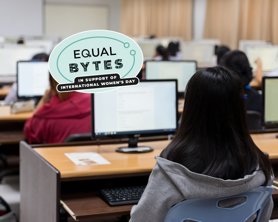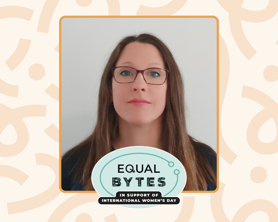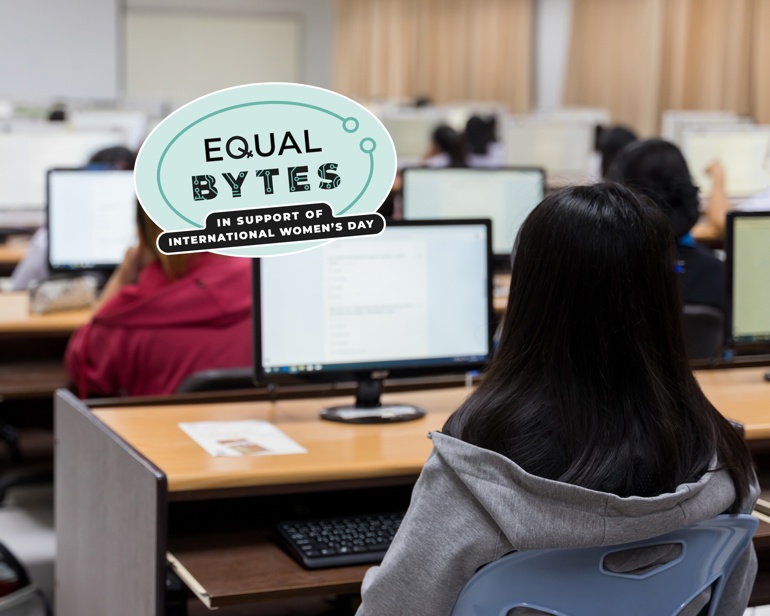Breaking barriers in STEM
Born Evelyn Marie Keller on 17 December 1913, she spent most of her childhood in Chicago. At 18 years old, she joined a religious order called the Sisters of Charity of the Blessed Virgin Mary (BVM) and took her vows in 1940.
Keller’s early career was rooted in education. She began as an elementary and high school teacher, which turned into nearly three decades as an educator. However, her love for learning went beyond her role as a Teacher. While teaching, she pursued higher education, completing both a B.A. in mathematical sciences in 1943 and a M.S. in mathematics and physics in 1953.
At a time where women were largely excluded from STEM education, Keller helped carve out a space for women in tech. In fact, her pursuit of knowledge led her to Dartmouth, a male-only institution at the time which made an exception to allow her to work in the computer labs there. In 1965, she made history as one of the first people, and likely the first woman, in the US to earn a PhD in Computer Science.
Her contributions to tech and education
After earning her Ph.D. in 1965, Keller founded one of the first computer science departments in the US at Clarke College, a women’s institution in Iowa. She led this department for 20 years and in this time empowered countless women to pursue careers in technology.
During her time in leadership, she advocated for inclusive education policies that supported women in balancing work, family, and education. She recognised the challenges faced by working mothers and allowed them to bring their babies to class. This policy gave more women the opportunity to continue their education, who otherwise wouldn’t have had the opportunity, and furthered Keller’s commitment to making education more inclusive.
A strong advocate for accessible education, she co-founded the Association Supporting Computer Users in Education (ASCUE) in 1967, an organisation dedicated to promoting the use of computer technology in higher education.
She also championed the BASIC programming language, which was designed for students and beginners to simplify programming and make it more accessible to a wider audience. Although there is a rumour that suggests Keller worked directly with John G. Kemeny and Thomas E. Kurtz to develop BASIC, this isn’t true. Instead, she became a dedicated teacher of the language and later co-authored a textbook on the subject in 1973, helping to further its reach in education.
Her vision for the future of tech
Education was a driving force for Keller’s involvement in technology. She believed that computers had the potential to revolutionise education and could be used as tools to improve people’s lives. Today, computers are ubiquitous in educational institutions, offering the flexibility to study online and access learning resources anytime, anywhere.
Keller was also ahead of her time in predicting the rise of artificial intelligence. She recognised that computers could mimic human cognitive processes and believed it would play a key role in education and problem-solving.
Legacy and impact
After her passing in 1985, Clarke College, now Clarke University, honored her by renaming its computer center the Keller Computer Center and Information Services, which continues to provide computing support to students and staff. They also established the Mary Kenneth Keller Computer Science Scholarship, to ensure that her legacy lives on.
Mary Kenneth Keller’s contributions to computer science and education helped pave the way for women in STEM and continues to inspire countless women to follow in her footsteps.
For more inspiring stories, expert insights from women in tech, and practical advice on taking your first step into the industry, check out our Equal Bytes campaign.
Related Articles
 Tech
TechInclusivity in Cyber Security | An interview with Rob Black
In this insightful conversation, Rob Black, a prominent figure in the UK cybersecurity industry, discusses the importance of creating an inclusive and supportive environment for everyone, regardless of background or gender.
Read More Women in Tech
Women in TechMary Kenneth Keller: A trailblazer for women in tech and education
Mary Kenneth Keller was a computer science pioneer who led the way for women in both tech and education. Discover her contributions and how she continues to inspire more women to pursue careers into STEM.
Read More Tech
TechLife in Cyber Security | An interview with Karine Tobin
If you're curious about breaking into cybersecurity or simply need a boost of motivation to pursue your goals, this conversation is packed with insights on resilience, the power of networking, and why finding your “why” makes all the difference.
Read More Women in Tech
Women in TechCelebrating Hedy Lamarr
Hedy Lamarr was more than a Hollywood icon. Her groundbreaking work in frequency-hopping spread spectrum laid the foundation for Wi-Fi, Bluetooth and GPS. Despite being overlooked in her time, her legacy endures, proving that beauty and intelligence can coexist. Discover the untold story of her genius.
Read More

